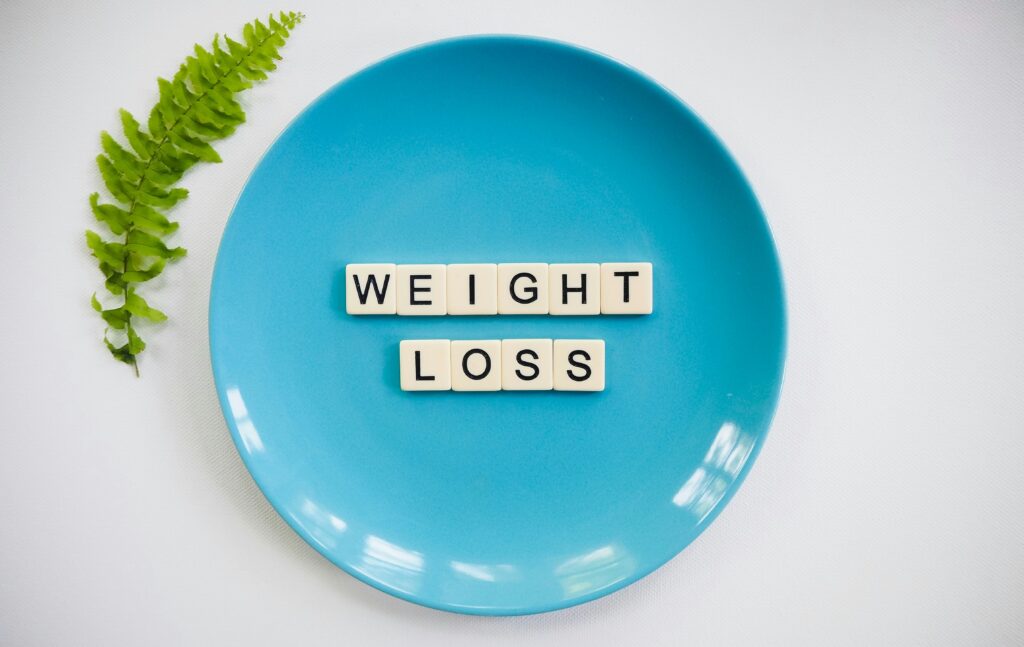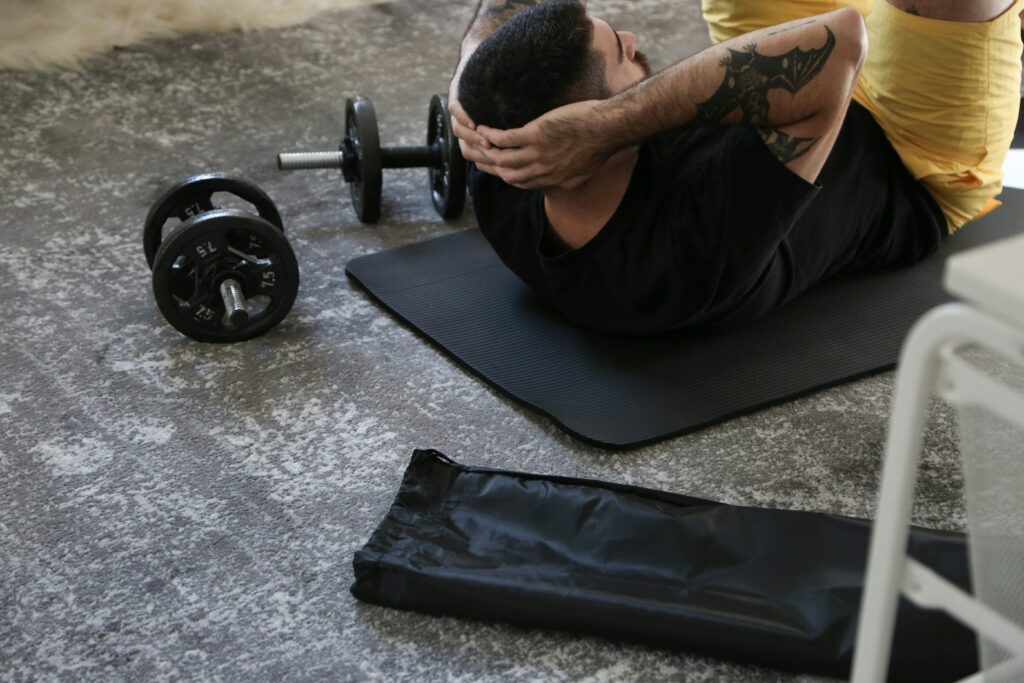Introduction:
When most people think about weight loss, they think of looking better in a mirror or fitting into old jeans. In reality there is so much more to it. Weight loss is about feeling better, moving better and living longer.
According to the Centers for Disease Control and Prevention (CDC), over 42% of U.S adults are obese and most of them are classified as overweight. We are more concerned about the cosmetic consequences of getting obese and not about diseases associated with obesity such as type 2 diabetes mellitus, heart diseases, high blood pressure, stroke and certain cancers. In this blog we will walk you through everything you need to know about weight loss and staying fit in simple scientifically proven way.

Understanding Weight Loss:
In order to lose weight you need to adopt a calorie deficit diet. In this diet plan you burn more calories than you consume. Calories in = what you eat and drink and Calories out = what your body burns through exercise, movement and functions.
1 pound of fat is roughly equal to 3500 calories. So if someone wants to lose 1 pound of fat per week then he should decrease his calorie intake by 500 per day.
Weight loss is not only about calories, many factors influence weight loss which people might not consider such as independent variables like hormones, sleep, stress, genetics and even your gut microbiome play an important role.
Fitness and Nutrition:
Nutrition: You Can’t Outrun a Bad Diet;
Weight loss is not possible without adopting a proper diet plan. Food that you consume on regular basis have a big influence on your physical appearance. It can effect both physical and mental health. Some good tips to improve your diet and make it more healthy are:

1. Increase Proteins Intake:
You must prioritize proteins. Balanced protein intake is very crucial because it keeps you full and supports your muscles. A rough way to find out how much protein you should consume per day in a weight loss diet is to multiply your body weight in kilograms by 0.8 or 1.
2. Avoid Sugar:
A study conducted by the American Heart Association recommended consuming less than 24–36 grams of sugar per day.
3. Eat More Fiber:
Fibers are found abundantly in fruits, vegetables, legumes and whole grains. A diet rich in fibers hold numerous benefits such as reducing appetite, promoting peristalsis and stabilize blood sugar.
4. Liquid Calories:
Manufactured drinks like alcohol, soda, juice and coffee can add hundreds of calories to your daily diet plan.
A study was conducted in 2020, later on published in The American Journal of Clinical Nutrition found that high protein and high fiber diets lead to better weight loss and improved satiety.
Start Exercising:
Exercising on daily basis hold numerous benefits by improving heart health, mood and metabolism. However for someone interested in weight loss exercise alone does not make significant difference. The best exercise strategy to lose weight is combining cardio with strength training.
Cardio means walking, running and swimming. These exercises are great for heart health. You can burn a lot of calories by doing them.
Strength training means using weights and resistance bands to build more muscle. This also increase your metabolism and help you get rid of extra fats.
NEAT stands for Non Exercise Activity Thermogenesis. These are all those activities that cannot be classified into formal exercise but help you lose calories. Cleaning house, going to a neighbor’s house or standing at a bus station etc. are all included in this category.
A study published in Obesity Reviews (2011) confirmed that exercise alone can help you lose weight modestly but it significantly improves your long term body maintenance and composition.

Weight Loss Tips That Actually Work:
1. Set Realistic Goals:
If you set goals like losing 20 pounds in just two weeks the chances of achieving it are pretty low without damaging your body. Always aim for realistic goals like losing 1 – 2 pounds per week. This way is more safe and practical and you would more likely stick to it.
2. Track Your Food Intake:
People who keep a track of what they eat and how much they eat are more likely to lose weight compared to those who don’t. You can use apps like MyFitnessPal or Lose It! can help you measure your daily calorie intake.
3. Prioritize Sleep:
It sounds strange but sleep can significantly affect your physical appearance. A study from NIH linked poor sleep quality with increased hunger hormones and weight gain.
4. Stay Hydrated:
No one can deny how important it is to keep your body hydrated. Drinking water before meals help reduce appetite and prevent mindless snacking. 8 glasses of water is recommended by many authorities however it depends on many factors such as your diet, age, climate and where you live.
5. Mindful Eating:
These days’ people eat without even looking at their plate because their eyes are fixed on a screen. It’s a very bad habit that many people have adopted. In order to lose weight you need to avoid distractions and truly taste your food. Mindfulness can help you avoid overeating.
6. Don’t Skip Meals:
Skipping meals to avoid calorie intake can backfire. This will lead to overeating later. Focus on balanced regular meals to avoid such mishaps.
Common Weight Loss Myths:
Myth 1: Carbs Make You Fat:
Refined carbs like white bread and sugar are not good for your health but carbs are not your enemy. They are a good source of instant energy. Carbs present in oats, brown rice and fruits are quite good and should be part of every healthy diet.
Myth 2: You Need Detox to Lose Weight:
Liver and kidneys are your naturally in built detox systems. Many researches have labeled detox teas and juices as a scam.
Myth 3: Eating Late Can Cause Weight Gain:
Gaining weight is more about how much you are eating rather than when. If your calorie intake is control, timing has almost no effect on gaining weight.
Myth 4: Fat is Bad:
Fat is an essential nutrient that is required for the proper functioning of the brain and other important structures. Fats can be good and bad. Avocados, nuts and olive oil contain good fats.
Weight Loss Supplements:
Many people prefer supplements than dieting and exercise. However most of over the counter supplements have little to no evidence of actually helping you lose weight. Some of them can be harmful as they interact with other drugs. Caffeine, Green tea extract and Fiber supplements can be helpful to a lesser extend but they are no substitute for diet and exercise.

The Emotional Side of Weight Loss:
You might think losing weight is a physical journey but in reality it is both physical and deeply emotional. People often deal with emotional eating, body image struggle and social pressure.
If you feel any of the above mentioned it would be nice to get support from your health coach or a therapist, it can make a big difference.
Conclusion:
Losing weight is not about spending hours in the gym or starving yourself. You need to focus on small, consistent acts and remember to eat real food, move your body a little on regular basis. You also need to sleep properly. Never go for a “quick fix” as it can harm your body instead focus on creating a lifestyle that you can easily maintain for a longer duration. People get discouraged easily in this journey but the fact that you are still here means that you are one the right path. Don’t chase skinny instead chase strong, healthy and happy. If you like this blog and want to know more about medicine and human body go to my website Medrizz.com.
FAQs:
What is the most effective way to lose weight?
The most effective way to lose weight is by creating a calorie deficit—consuming fewer calories than your body burns—while also focusing on a balanced diet, regular physical activity, and healthy lifestyle habits like sleep and stress management.
How many calories should I cut to lose 1 pound of fat per week?
To lose 1 pound of fat per week, you need to create a deficit of about 500 calories per day, which totals 3,500 calories over the week.
Can I lose weight with just exercise?
Exercise supports weight loss and improves body composition, but by itself it typically leads to only modest weight loss. Combining exercise with a healthy diet is more effective.
Do I need to cut out fat to lose weight?
No. Healthy fats found in foods like avocados, nuts, seeds, and olive oil are essential for your body and can be part of a balanced weight loss diet.
Is eating late at night bad for weight loss?
Meal timing has less impact on weight than overall calorie intake. Eating late won’t necessarily cause weight gain if you’re within your daily calorie limits.

